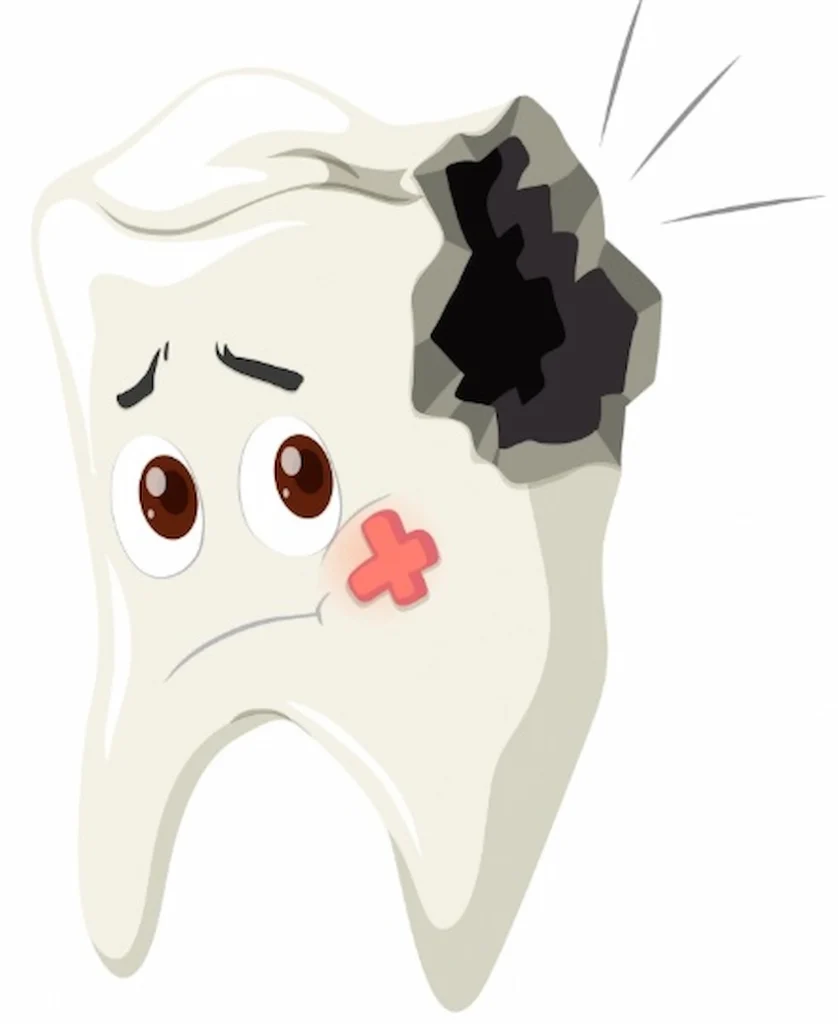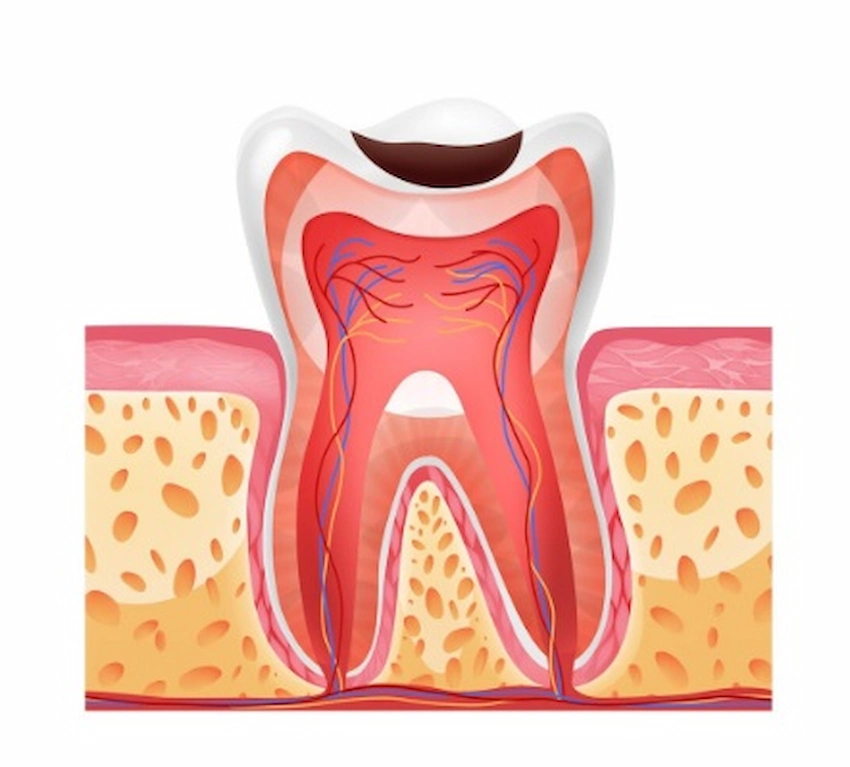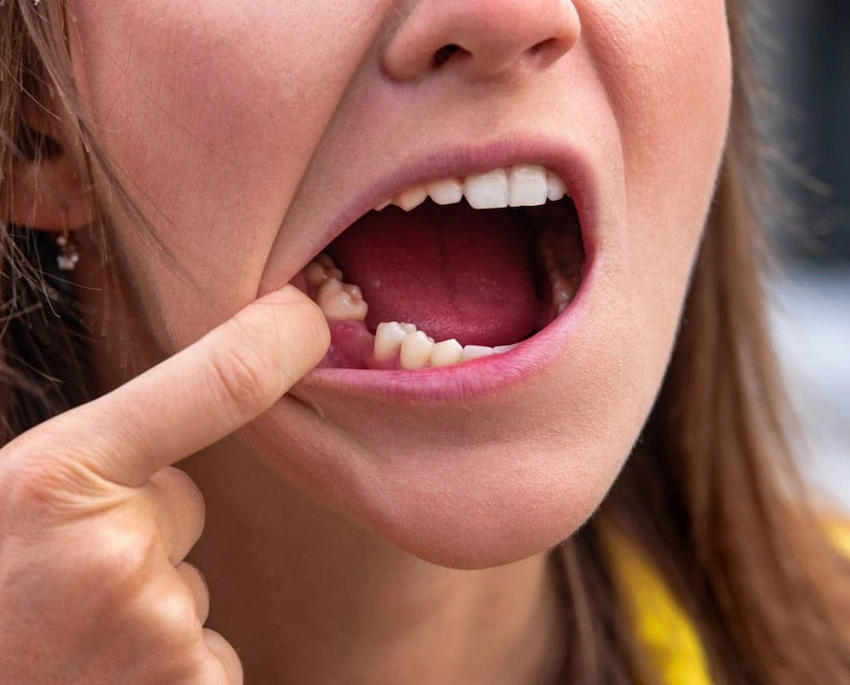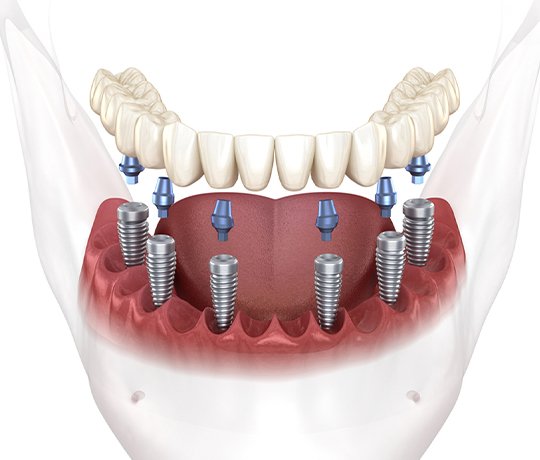🦷How to Heal a Cavity Without Fillings

Many of the patients, especially the teenagers, inquire about the chance of curing cavities without using dental fillings or any other dental procedures. The patients have the option of using natural treatments and making changes in their daily routines that would reverse the damage that tooth decay has caused to their otherwise healthy teeth. To eliminate dental caries, it is important to either fully abstain from or minimally use the traditional measures that either avert or eliminate this condition; therefore, there should be knowledge concerning what dental caries exactly entails, and how the establishment of good dental hygiene and proper eating habits can help.
Trying to comprehend the workings of marginally existing cavities is one of the most essential prerequisites to maintaining perfect health and having a tremendous smile, not that it is possible to alleviate the misery caused by cavities without the use of dental treatments. There is a series of procedures one can follow to make certain that one’s teeth are well.
Understanding Cavities and Tooth Decay
Caries is a medical term for tooth decay, an alternative name for cavities. They are usually formed as a result of a continuous attack, which causes the tooth surface to experience a permanent hole or a kind of damage that may expose the inner tooth, known as the pulp. The process of tooth decay refers to the damage to the tooth structure, i.e., the hard tissues of the tooth, mainly the enamel, by the action of the acids produced by the bacteria found in the mouth. Even though other things matter, the main ones to note about the cavities include diet, inadequate teeth brushing habits, and less of visits to the dentist.
What Causes Cavities?
The most common misconceptions of the major causes of cavities are snacks, beverages, and acidic foods, with the rest being poor oral hygiene leading to cavities. It is a well-known fact that the majority of the microorganisms inside a person’s mouth consume sugars for energy, and they then release corrosive substances that dent and also damage the enamel. This situation is an example of saliva production being inadequate, and it happens when we eat, and bits of the food get stuck on the teeth, thus becoming the start of cavities.
Are Cavities Still Curable Naturally?
There is are steel misunderstanding of the decay of the diseases, cavities, and the topic that may be dealt with without medical interference, or in such cases, just allow the teeth to get bad and do the filling. Some research has shown that it is possible to reverse, especially cavities from the outer surface, very early stage with favorable conditions. The way to activate and support the natural healing of the teeth include a diet with less sugar that is not used as food by bacteria, the practice of good oral hygiene that takes away harmful substances and remove them from the mouth and, lastly, a diet rich in minerals that contribute to the health of the teeth.
Diet’s Contribution to the Occurrence of Dental Caries
Diet is one of the biggest risk factors of dental caries, and as a corollary, it is diet that can prevent cavities in individuals, as well. Those foods that are rich in sugars as well as acids are the main culprits for the growth of bacteria that may cause cavities. The connective link between sugar and acid creates conditions that are suitable for the proliferation of bacteria, and the bacteria produce acids, which in turn demineralize the tooth surface. However, the food with all the necessary minerals such as Calcium, phosphorus, & Vitamin D can make the teeth stronger and stop the demineralization process and reverse the onset of the disease. A good and safe diet is very important to the proper health of teeth.
Natural Ways to Remineralize Teeth
Mineralization is the process of adding a specific mineral to the body, and one of the first things to understand is that this is a natural way to remineralize our teeth. Commonly, human beings have good mechanisms in their bodies that help them to renew the enamel that is formed from the minerals in the teeth.
These minerals are often provided by various means, such as eating certain foods and the action of the saliva that is produced in the mouth. Diet advice is for the provision. Eating foods that do not have fluoride as part of the meals helps to maintain the health of the teeth and stops cavities. Therefore, it follows logically that people can make use of the natural ways that help in the proper maintenance of teeth health consciously and effectively without necessarily seeing a dentist, which may also be expensive.
Many kinds and products are fundamental in the strengthening and repair of the teeth’s enamel. Some of the most important products include suitable vitamins and minerals such as calcium, phosphorus, vitamin D, vitamin K, and lastly, omega-3 fatty acids. Dairy products are among the best choices for this period, no wonder people have widely been referred to as the teeth health food; it’s no wonder. Other calcium-rich products, such as broccoli and almonds, among others, are also loaded.
What Is Tooth Remineralization?
The process of remineralization is the method by which minerals are returned to the tooth enamel, thus bringing about mineralization. Further, this special process not only works to maintain teeth and protect them from decaying but also makes them stronger. There are certain characteristics, as for instance saliva, food, and the time for the process, which can increase or decrease the speed and the results of remineralization. The body is in a constant process of regenerating such metabolites through the tooth, and the produced metabolites will ensure that our teeth will be healthy in the future.
Essential Minerals for Strong Teeth
The teeth to be unbreakable and sound healthwise must be supplied with the selected minerals of their required group. Owing to the key role the minerals play in good health, dental care, and the total well-being of an individual, drills and a full understanding of the following minerals should be the top priority:
- Calcium: As teeth are the bones of the mouth, the presence of calcium in the teeth is vital as it is directly involved in the formation of teeth, and it also acts as an implant in the treatment of enamel abrasion.
- Phosphorus: Phosphorus is a mineral that works closely with calcium in teeth remineralization. It (therefore means that) is indispensable for the proper maintenance of the teeth’s health.
- Magnesium: Magnesium is a mineral which not in direct contact with other minerals. However, it plays a role in the process of calcium absorption of the body, keeping the bones and teeth strong.
- Fluoride: Although new studies have cast doubt on the effectiveness of fluoride, this mineral is still debatable. Provided that fluoride is in moderation, it has the power of raising the resistance of enamel to decay and can even assist the area of enamel that has been damaged and thus changed its place. These minerals are primarily preventive measures for dental caries; in other words, nutrient sources that are consumed daily are rich in them.
How Does Saliva Work to Heal Cavities?
The body’s oral cavity is a place that suffers from bacterial invasion, most of which are considered dangerous and are located in the mouth’s epithelium, which leads to cavities, although the majority of them are among normal residents and serve a purpose. Although there is a host of biofilm-forming bacteria in the mouth, the leading cause of tooth rot rests on the specific group of Streptococcus mutans and Lactobacillus. These bacteria feed on the remnants of sugars from food, and as they digest these sugars, they produce acid as a by-product which affects the teeth and lays the foundation for dental caries. The medical
Effective Home Remedies for Cavity Healing

Home remedies are one of the effective and practical natural therapeutic strategies for pain relief and dental health care that do not require the involvement of professional doctors. Home use of remedies like oil pulling and non-fluoride toothpaste are some of the methods that can be practiced by anyone to enhance their oral health. Hence, if these methods are carried out consistently and frequently, people’s smiles will remain healthy and beautiful.
Use of Oil Pulling For Oral Health
Oil pulling is one of the most popular traditional therapies that originated from Ayurvedic medicine, a traditional Indian form of therapy. The process of oil pulling makes use of the natural sensory effects of the oil to enhance the health of the mouth. Through oil pulling, the cherished oils such as coconut and olive need to be moved in the mouth for some time, during which they are believed to be cleaning teeth, eradicating bacteria, and improving gum health. Saliva production and breath refreshment become the way of removing bacteria from the mouth by which the threat of the plague being built up is lessened and the cavities are therefore protected by just making it the first activity in the morning. If oil-pulling is included in the daily routine of people, it becomes a safe, accessible, new preventive option for oral health that will significantly reduce the incidence of cavities, gum diseases, and other ailments.
Use of Fluoride-Free Toothpaste
Fluoride is a component that some people may want to avoid due to their health conditions, so the best way they can access fluoride-free toothpaste is. While the majority of the toothpastes provided by vendors are armed with fluoride, which is crucial in keeping the enamel strong, these essential products are also capable of containing a mixture of natural ingredients that can help the teeth to remineralize. In addition, as an immediate result of the aforementioned, these products can also aid in the fight against the looming enemy called the cavity since they have no harmful chemicals. The purchase of fluoride-free toothpaste, a component complementary to strong teas or hydroxyapatite, which is to be covered in detail, thus offering the users knowledge of additional fortification.
Herbal Remedies for Dental Care
The benefits of roots and leaves are evident in that they not only boost overall health but also look after our teeth and gums, as they have some specific ingredients that today’s toothpastes and mouthwashes lack. A common case that can be mentioned here is the usage of clove oil, which is known for its quick pain-relieving outcome. If used with a carrier oil to dilute it, it can be applied to the painful area. Use of sage is also one of the recommendations for its overall antibacterial action, that many times have been shown to kill targeted germs. The first favorite herbal remedy that can be added is chamomile, which has an outstanding calming factor, making it the best option for inflamed parts. Most importantly, green tea is also equipped with the technologies of the future; hence, the occurrence of the bacteria that can cause new cavities is reduced, and the cavities don’t start at all. All of these herbs, if used without recipes or long waiting periods, can significantly improve your dental health when used and gathered in a set regimen; they really become nature’s best companions.
The Importance of Proper Oral Hygiene
When we think about having well-cared for a healthy white teeth, we always remember that oral hygiene is crucial. The most common and correct care of the teeth and mouth will prevent and even cure the common teeth, gum, and bad mouth conditions. Most of the bacteria that live inside our mouths are not capable of causing diseases; however, there are also some species that, if neglected, can build up on the teeth and cause infection, decay, or nausea. Just as most living organisms, bacteria are found almost everywhere and are generally protected from being dislodged and killed by the fluids of the mouth and different forces. Notably, those poor cleaning habits are what make cavities.
Brushing Techniques to Protect Enamel
Properly brushing the teeth is very necessary for preserving the enamel, which is the tooth’s outer layer, and is essential for the teeth to be strong, healthy, and white. Therefore, it is important to opt for a soft-bristled toothbrush that protects the enamel from being damaged by a strong brush, as brushing too hard can wear away the enamel, and this causes other dental problems and cavities. Nonetheless, how the process is performed can cause a positive impact on its efficiency, and it is suggested to spend at least 2 minutes brushing the teeth and go for the motion from top down and back to get better results. The most effective way to brush is to move the toothbrush back and forth, up and down, on all surfaces with special attention to the spaces between the teeth and the gumline, which are often neglected.
The Proper Way to Use A String Floss for Healthy Teeth
While brushing is an essential part of regular dental care, it is not enough to get all areas of the teeth clean, and hence, flossing is necessary for the entire mouth care. If done with the appropriate efficient technique, flossing is able to perform 70% of the oral cleaning work. This can grossly, without getting into the details, explain how just a good floss would only be able to do nearly all the cleaning work. By selecting only the necessary tooth piece of floss, and then gently slipping it between the teeth without hurting the gum, cleaning does the trick; that is how food debris is removed from between teeth. Consistently keeping each tooth clean can, by itself, keep the teeth and gums in the best healthy state a human being can be.
Why You Should Use a Natural Mouthwash
Natural mouthwashes that are composed of entirely natural ingredients provide a myriad of health benefits to people who use them. There are several home-based recipes and natural herbal-induced mouthwashes that show exceptional performance in the fight against bad breath, and at the same time give an extra clean mouth. Probably the best part about it is that the mouth harbors natural moisture, and thus, that is most likely the reason even the skin stays moist and not dry. Maintaining a good hygiene routine through the regular use of a natural mouthwash helps keep the mouth fresh and well-oxygenated.
Lifestyle Changes That Can Help Prevent and Heal Cavities
It is crucial for everyone who has or wishes to prevent cavities from happening, really to effect lifestyle changes because they can help prevent and heal cavities. Everybody understands the fact that stress management positively impacts one’s health status as an intimidating oral health factor. Additionally, it cannot be denied that a good and quality sleep condition also supports the health of the teeth, gums, as well as the oral cavity. On the other hand, do not forget that proper and adequate hydration is an important step in strengthening the teeth against cavities. As it can be seen, simple yet relevant lifestyle adjustments can have a major and significant effect on the risks of getting cavities.
Managing Stress for Better Oral Health
The management of one’s stress, taking the situation to be a general aspect of one’s overall health, their oral health is equally important. You should know that people are susceptible to teeth grinding and other serious dental issues when stress levels are high. If dealing with stressful situations, be sure to note specific relaxation techniques, including yoga and meditation, since they are effective in decreasing stress levels. But you can even consider the benefit of regular exercise for the better face of life, emotional, and psychological health.
The Connection Between Sleep and Dental Health
The quality of sleep plays a crucial role in repairing the body. Due to an insufficient period of sleep, the immune system weakens, and it opens doors for dental problems. Most research states that during sleep, there is a pause in the production of saliva, which protects the teeth from rotting or decaying. Therefore, it is obvious that we should strive for getting not only a good sleep but also a healthy sleep for the improvement of dental health.
How Hydration Supports Strong Teeth?
There is a constant moisture and hydration of the body’s systems, and the mouth also goes along with oral health. When a person drinks a decent amount of water, they are stimulating the production of saliva. The saliva mainly acts as a protective coating that protects the teeth from cavities and acts as a natural cleaner. Besides, it has been noted that proper hydration has a positive effect on the dentin-remineralization process due to water. Hence, it is proper and regular to consume not least eight glasses of water daily.
When to See a Dentist Even Without Fillings

While there is no doubt that one can have natural ways of treatment to heal cavities, it will be important sometimes to seek help from a specialist dentist. Undertaking regular dental check-ups and seeking professional advice will enhance effective management. Regular dental check-ups and examinations by a dentist are the best ways to ensure that tooth decay is addressed early enough before it gets very serious. Furthermore, it is clear that in case of major and severe dental problems, the dentist is the right and only person who can deal with them. It is important to understand when to seek help and when not to about the overall oral health, as well as getting the most from one’s efforts in one’s teeth.
Signs That Require Professional Intervention
Certain signs indicate the need for professional dental intervention, and these should never be ignored. These symptoms can range from severe and continuous pain in the teeth or jaws, swelling, and persistent discomfort that is indicative of a problem that needs professional advice and treatment. Your gums and teeth’s appearance indicate the possibility of a condition that may require the help of a professional. When cavities have progressed to the point where they are visible or significant, it is essential to see a dentist immediately.
Alternative Dental Treatments Without Fillings
Instead of opting for traditional fillings, there are alternative treatment options available. Sanative treatments such as ozone therapy and laser treatments enhance tooth healing for minor cavities and decay, allowing us to repair and preserve our teeth with minimal damage to the extent of the tooth structure.
These modern treatment approaches are gentler and more conservative ways of treating tooth decay. These modern treatment approaches utilize advanced technologies that are gentle on the teeth as opposed to conventional filling procedures that might cause discomfort. It is essential that you are made aware of these alternatives to fillings by your dentist and explore the various options available to tackle your dental problems.
How to Work with a Holistic Dentist?
A holistic dentist focuses on the patient’s overall health when providing dental care. They train themselves on the use of natural methods of treatment and minimally invasive procedures that are capable of treating any underlying problem without undertaking any unnecessary trauma. Especially when looking for treatment for cavities, working with a dentist who is a holistic dentist is probably one of the most amazing experiences you might ever have. Holistic dentists simply do not look after your teeth, but also consider everything around them in the totality of life and body. They focus on improving the dental health and overall well-being of patients by paying attention to their nutritional status, lifestyle practices, and other aspects of their health-related behavior.
FAQs About Healing Cavities Without Fillings
There are many questions that people commonly ask about other ways to restore cavities besides going for fillings. Some inquiries on the length of time required to remineralize a tooth, and if scenarios like cavities in children’s teeth that may heal themselves are common. Also, the healing power of various sugar substitutes, including xylitol and others, should be expounded. In addition to the aforementioned subjects, it will be important to clarify the topic of making a proper diet so that special care is taken in selecting the food parameters that can be consumed.
In their early stages, cavities—also called incipient or non-cavitated lesions—can sometimes heal naturally through remineralization. This requires excellent oral hygiene, fluoride use, and dietary changes.
Tooth remineralization usually takes a few weeks to several months depending on the severity of enamel loss and daily oral care habits. Consistent fluoride exposure and a mineral-rich diet are key.
Yes, cavities in baby teeth or early enamel lesions in kids can sometimes be reversed with good brushing habits, fluoride toothpaste, and reduced sugar intake. A pediatric dentist should monitor the situation closely.
Xylitol reduces the number of cavity-causing bacteria and supports saliva flow, which helps remineralize enamel. While it doesn’t “heal” cavities on its own, it’s an effective part of a cavity-prevention routine.
Foods high in calcium, phosphorus, and vitamins D3 and K2—such as leafy greens, cheese, eggs, and fish—support tooth repair. Avoiding sugary and acidic foods is equally important.
Oil pulling may reduce oral bacteria and improve gum health, but there’s no strong evidence it can reverse or heal cavities. It can be used as a supplementary habit, not a replacement for professional care.
A healing cavity may stop causing sensitivity and appear smoother or whiter on the surface. However, only a dentist can confirm healing through clinical exams or dental X-rays.
Yes, fluoride is scientifically proven to strengthen enamel and assist in reversing early-stage cavities. Professional fluoride treatments can accelerate the healing process significantly.
A small cavity left untreated can progress into deeper decay, possibly requiring a filling, root canal, or extraction later. Early detection and intervention are essential to avoid complications.
No, deep cavities that have penetrated through the enamel into the dentin cannot be reversed and will need a dental filling or other restorative treatment. Remineralization only works on the surface-level damage.




